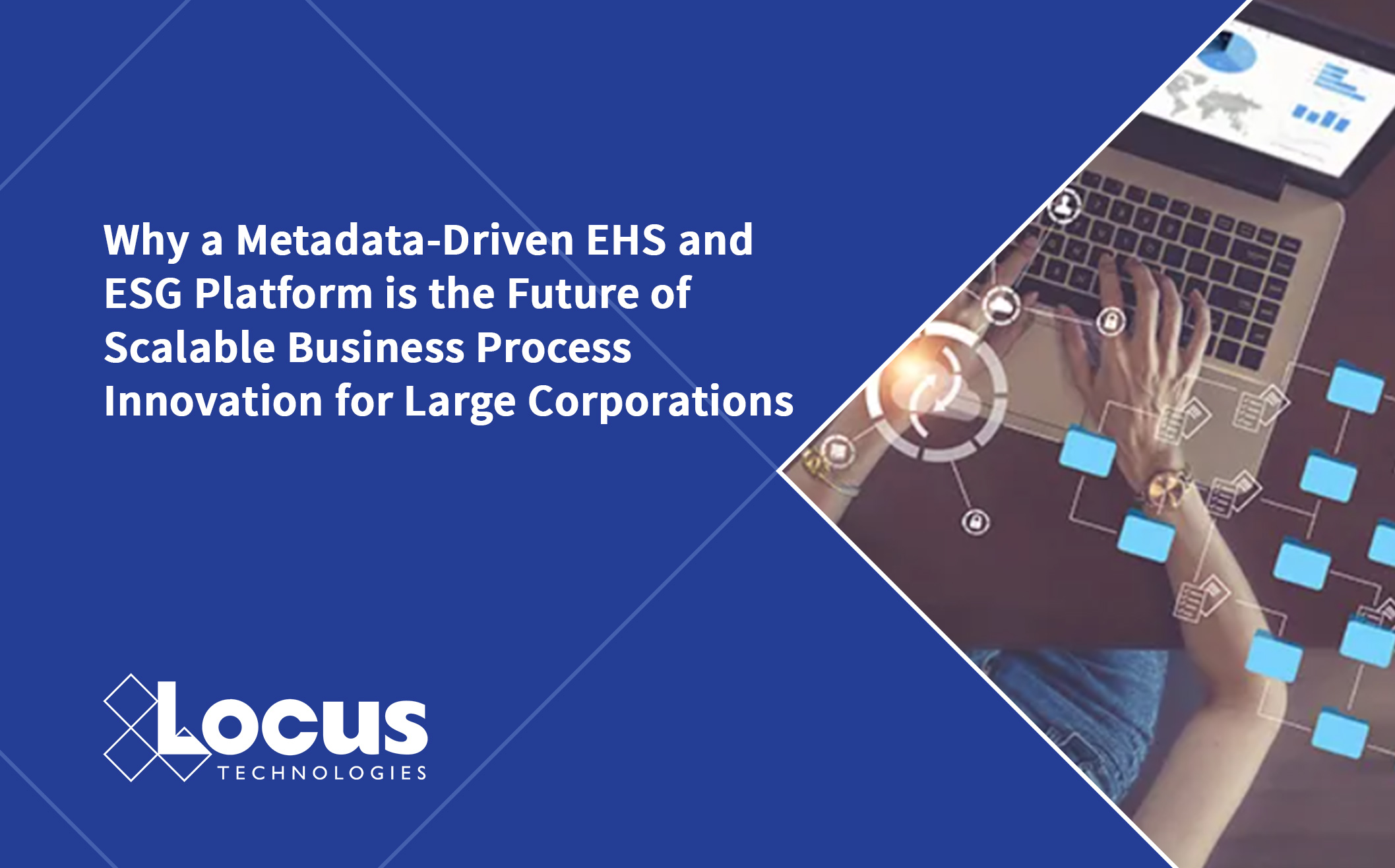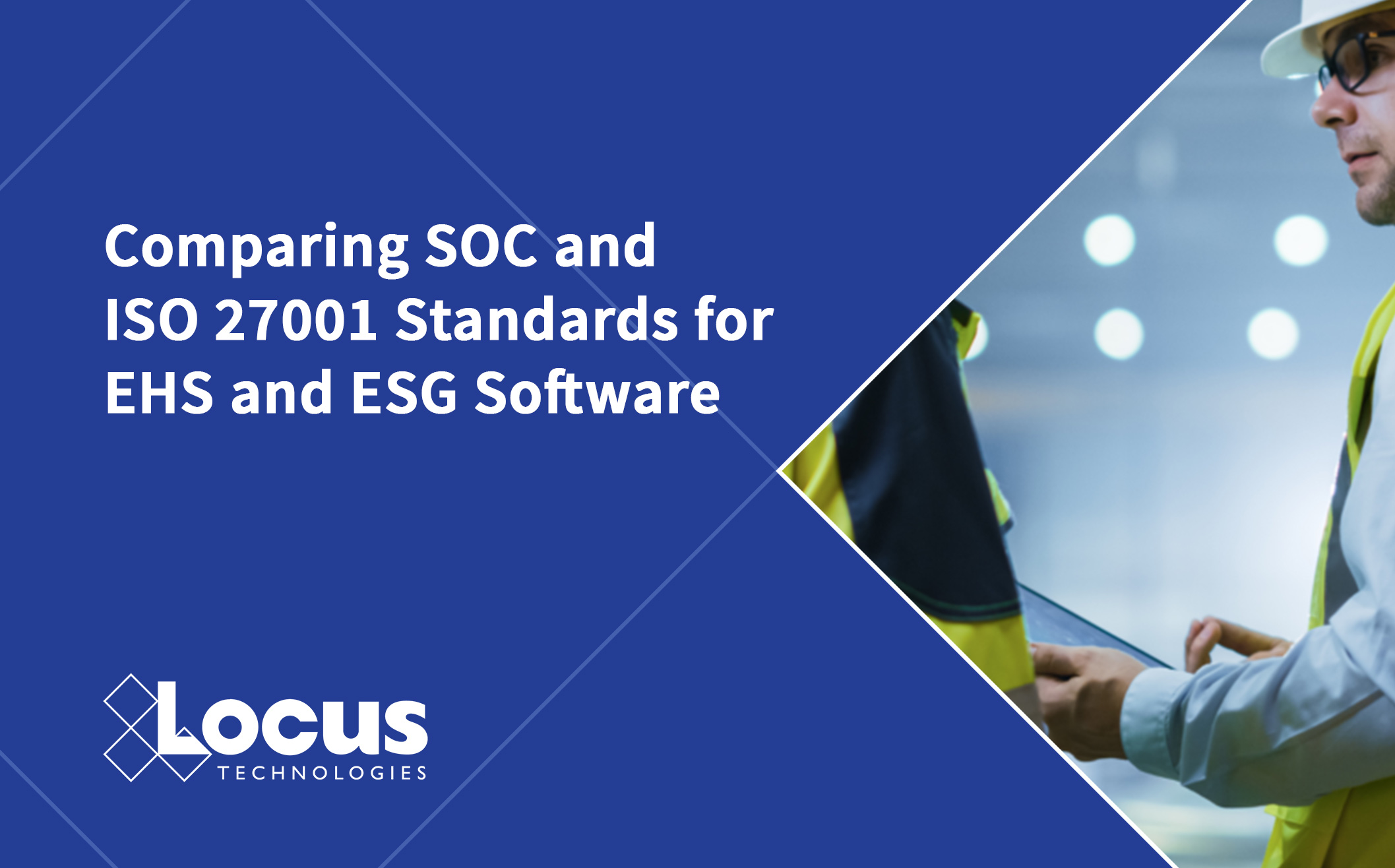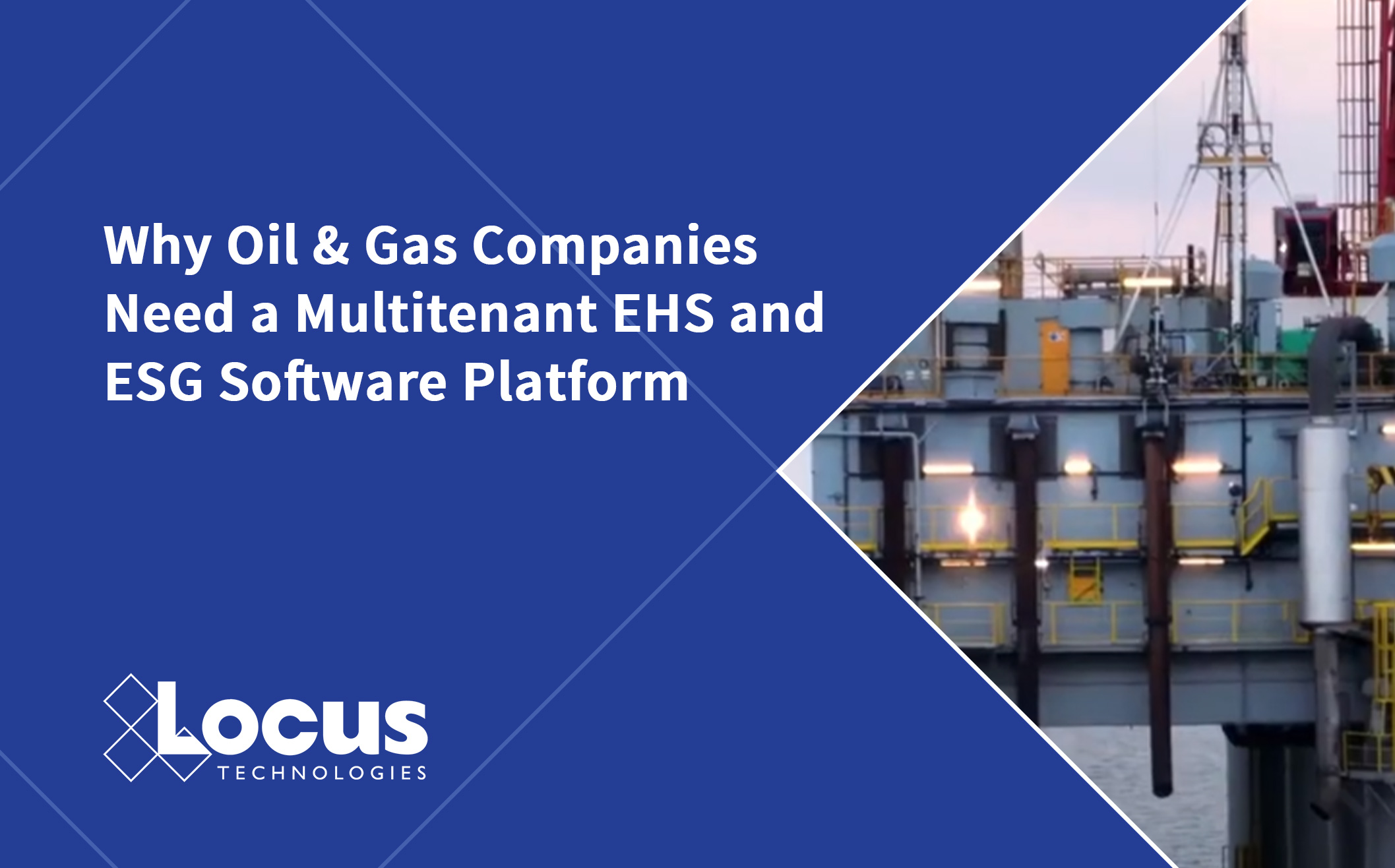Why a Metadata-Driven EHS and ESG Platform is the Future of Scalable Business Process Innovation for Large Corporations
By Sandeep Khabiya, CTO

Reading Time: 3 minutes
In today’s fast-moving digital economy, companies don’t just compete on products or services, they compete on adaptability. The businesses that thrive are those that can respond to market shifts, customer expectations, and regulatory changes faster than their competitors. That’s where choosing apps built on metadata-driven platforms, like Locus Platform, come in. Locus Platform and its ecosystem of EHS and ESG software is built to be agile.
Instead of hardcoding business logic and functionality, Locus Platform leverages metadata — the data that describes other data. In simple terms, this means the platform doesn’t “bake in” functionality; it “describes” it. Having made this strategic R&D decision decades ago, Locus software empowers customers to not just use out-of-the-box functionality, but to build, iterate, and scale their technology use.
Let’s explore why this approach is a game-changer and why it’s worth considering for your own organization.
1. Locus Software is Future-Proof by Design
One of the greatest challenges in enterprise software is technical debt. Traditional, code-heavy systems become brittle over time, making every new update costly and risky. With a metadata-driven architecture, Locus Platform separates configuration from core functionality, meaning:
- Upgrades are seamless: New features and improvements can roll out without breaking what you’ve already built.
- Business logic remains intact: Your workflows, rules, and automations adapt to platform updates instead of needing constant rewrites.
- You stay aligned with innovation: As Locus Platform evolves, so does your app, with minimal disruption.
This future proofing ensures your Locus investment continues to deliver value without forcing a costly rewrite every few years as technologies evolve and developers move on to adapt.
2. Scalable at the Speed of Business
Growth often creates friction: new geographies, new products, new regulatory requirements. In traditional systems, scaling often means starting from scratch or undergoing lengthy development cycles. A metadata-driven platform changes that equation:
- Rapid global rollouts: Multi-language, multi-currency, and compliance-ready features can be configured, not coded.
- Enterprise-grade reliability: Because the metadata layer handles logic, it can scale up or down without performance degradation.
- Consistent governance: Centralized metadata means consistent policies, access, and security across the entire organization for the apps deployed on Locus Platform.
Scaling with Locus Platform is less about re-architecting and more about reconfiguring, empowering your teams to meet new challenges with confidence.
3. Fast, Configurable, and Empowering
Perhaps the most immediate value of Locus Platform’s metadata-driven nature is its speed. Business users no longer need to wait weeks or months for developers to implement changes. Instead:
- Drag-and-drop customization: Forms, fields, workflows, and reports can be configured visually.
- Declarative automation: Powerful tools like Locus Configuration Workbench let teams automate processes without writing any code.
- Rapid prototyping: New ideas can be tested in sandboxes and rolled out incrementally, mitigating risk while accelerating innovation.
This democratization of platform development means fewer bottlenecks and greater agility, putting business transformation directly in the hands of the people closest to the customer or output.
4. A Strategic Advantage, Not Just a Platform
At its core, adopting a metadata-driven platform like Locus Platform is more than a technology decision — it’s a strategic advantage. It allows organizations to:
- Respond instantly to new requirements.
- Integrate seamlessly with emerging technologies like AI, IoT, and analytics.
- Evolve processes continuously without re-platforming.
In short, it turns technology from a constraint into a competitive edge.
The future belongs to organizations that can adapt quickly, securely, and at scale. Metadata-driven platforms like Locus Platform don’t just support that future; they enable it. By separating business logic from underlying infrastructure, they provide the agility to innovate, the resilience to evolve, and the scalability to grow without limits.
This is evident from the success our customers have had by choosing apps built on Locus Platform. They continue to grow and expand by adding more apps, facilities, and users to their deployments and refining their process for changing regulations.
For potential clients evaluating their software and automation needs, the choice isn’t just about features. It’s about future-proofing your business in a way that lets you move as fast as the market (and faster than your competition).
Sandeep Khabiya
Chief Technology Officer
Sandeep Khabiya is the Vice President of Software Engineering at Locus. He oversees the R&D organization with responsibilities for product development and the strategic direction of company technology.
Sandeep joined Locus in 2014 as Director Software Engineering and oversaw the development of the Locus multi-tenant, SaaS platform for EHS applications. He also led the initiatives for public cloud deployments and internal deployments of Locus Platform. Prior to Locus, Sandeep spent 14 years in R&D organizations at Hewlett-Packard, Mercury Interactive and Kintana. At HP, he was involved in the development of Project and Portfolio Management suite and the Cloud Service Automation suite as engineering manager and as the functional architect.
Sandeep holds a Masters in Mechanical Engineering from Mumbai university and Bachelors in Mechanical Engineering from Pune University.
Locus is the only self-funded water, air, soil, biological, energy, and waste EHS software company that is still owned and managed by its founder. The brightest minds in environmental science, embodied carbon, CO2 emissions, refrigerants, and PFAS hang their hats at Locus, and they’ve helped us to become a market leader in EHS software. Every client-facing employee at Locus has an advanced degree in science or professional EHS experience, and they incubate new ideas every day – such as how machine learning, AI, blockchain, and the Internet of Things will up the ante for EHS software, ESG, and sustainability.




